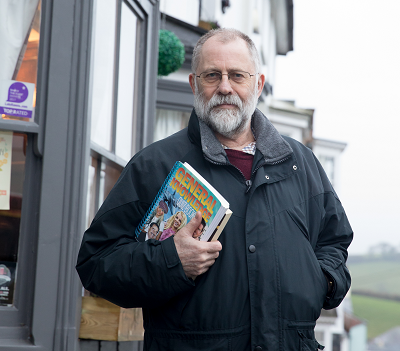The pub quiz guide to platelets
Platelet donor John Curry uses a quiz evening to educate his friends about these important little cells.
It was Sunday night in the pub, Quiz Night. I was there with my mates.

“Question 8,” said Tony the quizmaster, “Where in the body will you find platelets?”
“In the blood,” I whispered to Mike, the team scribe that evening.
“Are you sure?” said Les, “I’ve never heard of platelets.”
“Trust me, “I said, “I gave some away last Tuesday.”
“What, blood?” said Les.
“No, platelets. Write it down, Mike, I’ll explain later.”
We didn’t win that night, but we certainly got question 8 right. Over the final pint of the evening I explained about platelets and being a donor.
“Platelets are like the body’s emergency services,” I said. “If you get a cut, the platelets rush to the wound and bind together to close the gap and prevent as much blood loss as possible. Without them we would bleed to death.”
“But you said you gave them away,” team member Ian said. “How does that work? Does it happen when you give blood?”
I explained. “I’m hooked up to a machine which takes the blood through a needle in my arm, the platelets are removed in a filtering system, then the rest of the blood is returned through the same needle back into my arm.”
“Les,” I said, “Your daughter Molly was ill when she was born wasn’t she? I’m sure I remember her having to have platelet treatment."
“You’re right,” he said, “I’d forgotten that.”
“And do you remember Paul’s son, Chris, who had the liver transplant? He wouldn’t be alive without someone else’s platelets. Anyone having chemotherapy might need platelets.
“Here’s something else to think about,” I warmed to my subject, “whole blood can be stored for about a month but platelets are only usable for a week. The ones I gave last Tuesday were probably saving someone’s life by Thursday.”
“How often do you donate, then?” Les asked.
“Every 3 or 4 weeks. It usually takes around 80 minutes. So that’s about 10 or 11 times a year, say 15 hours of my life. And each one of those donations could help to save 3 adults or 12 children.”
I have an idea that the next time I go to the donor centre, I might be taking some new donors with me.
 Find out more about becoming a platelet donor.
Find out more about becoming a platelet donor.
In this issue of The Donor magazine
Helping young people get the message
Save someone's life while going about yours
